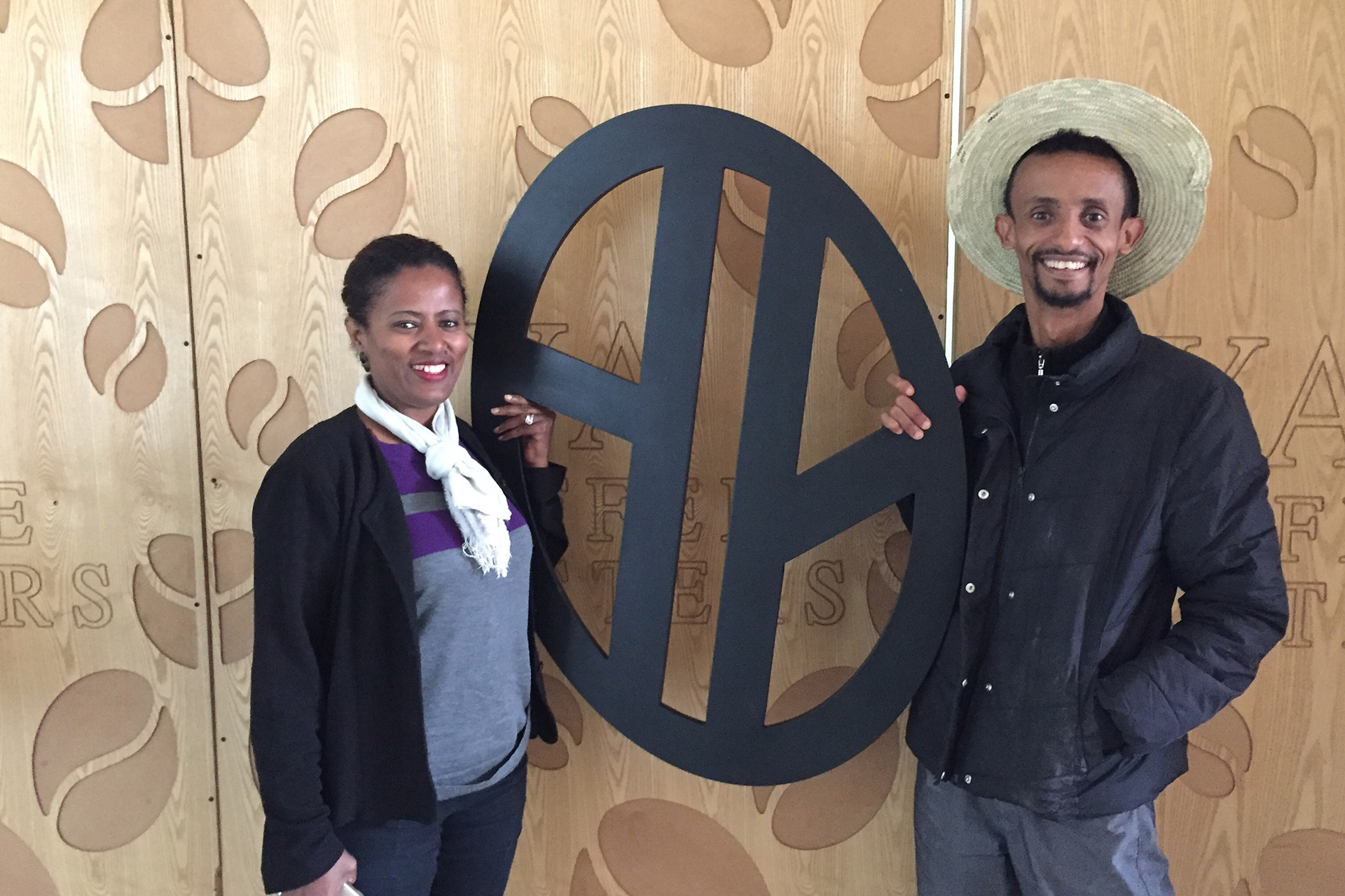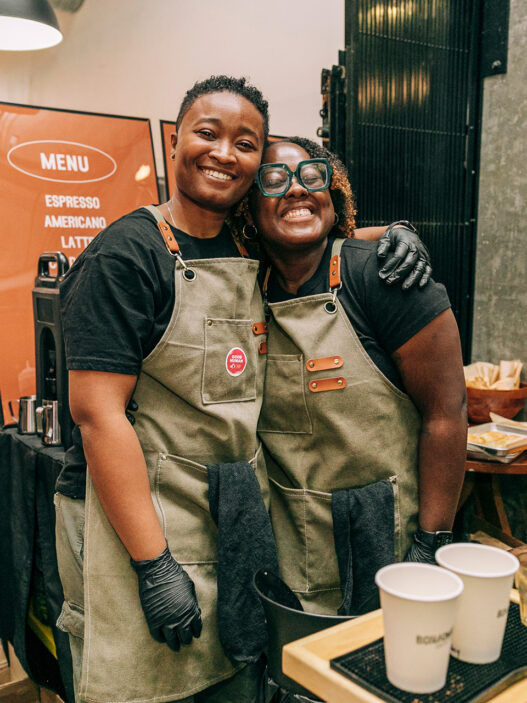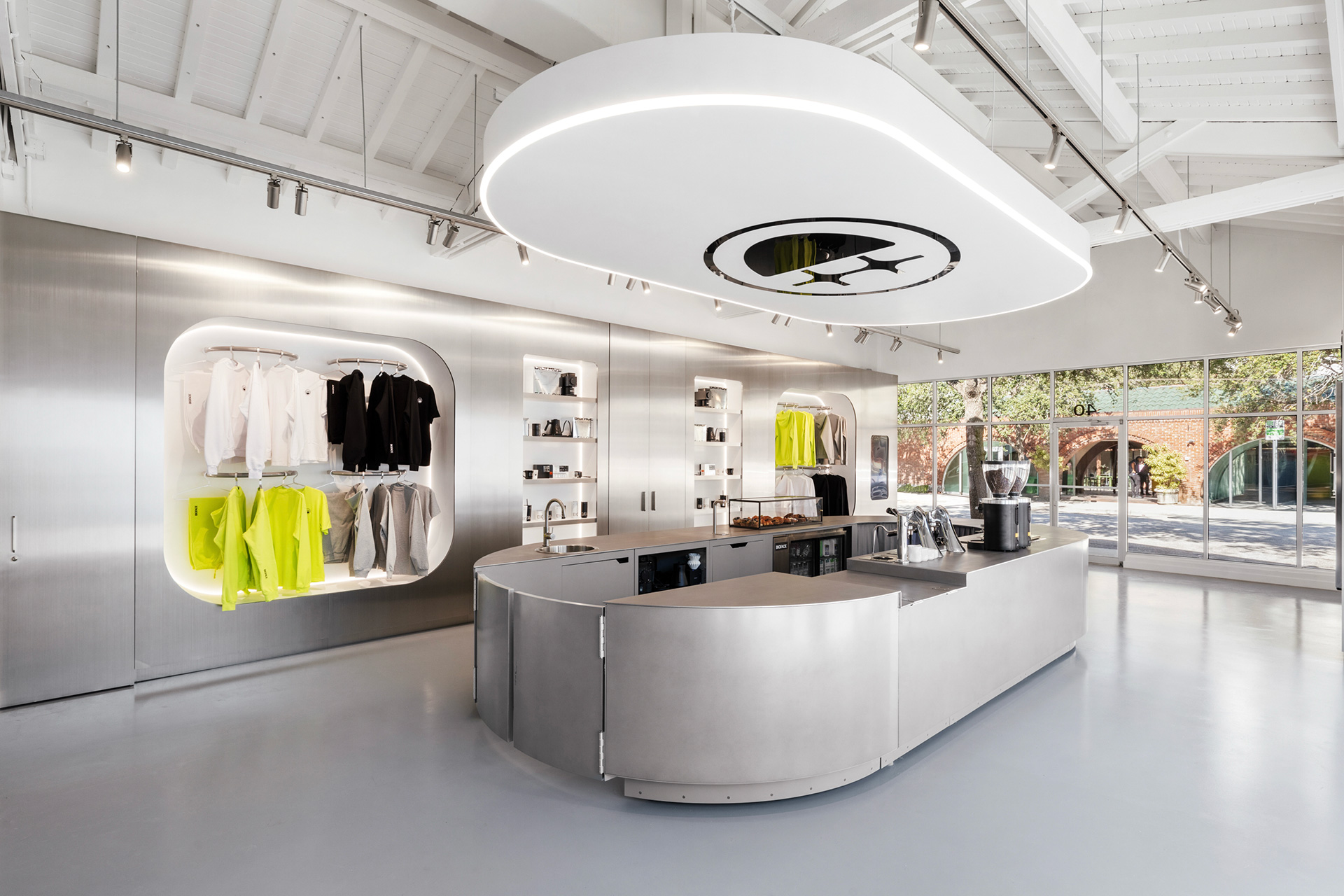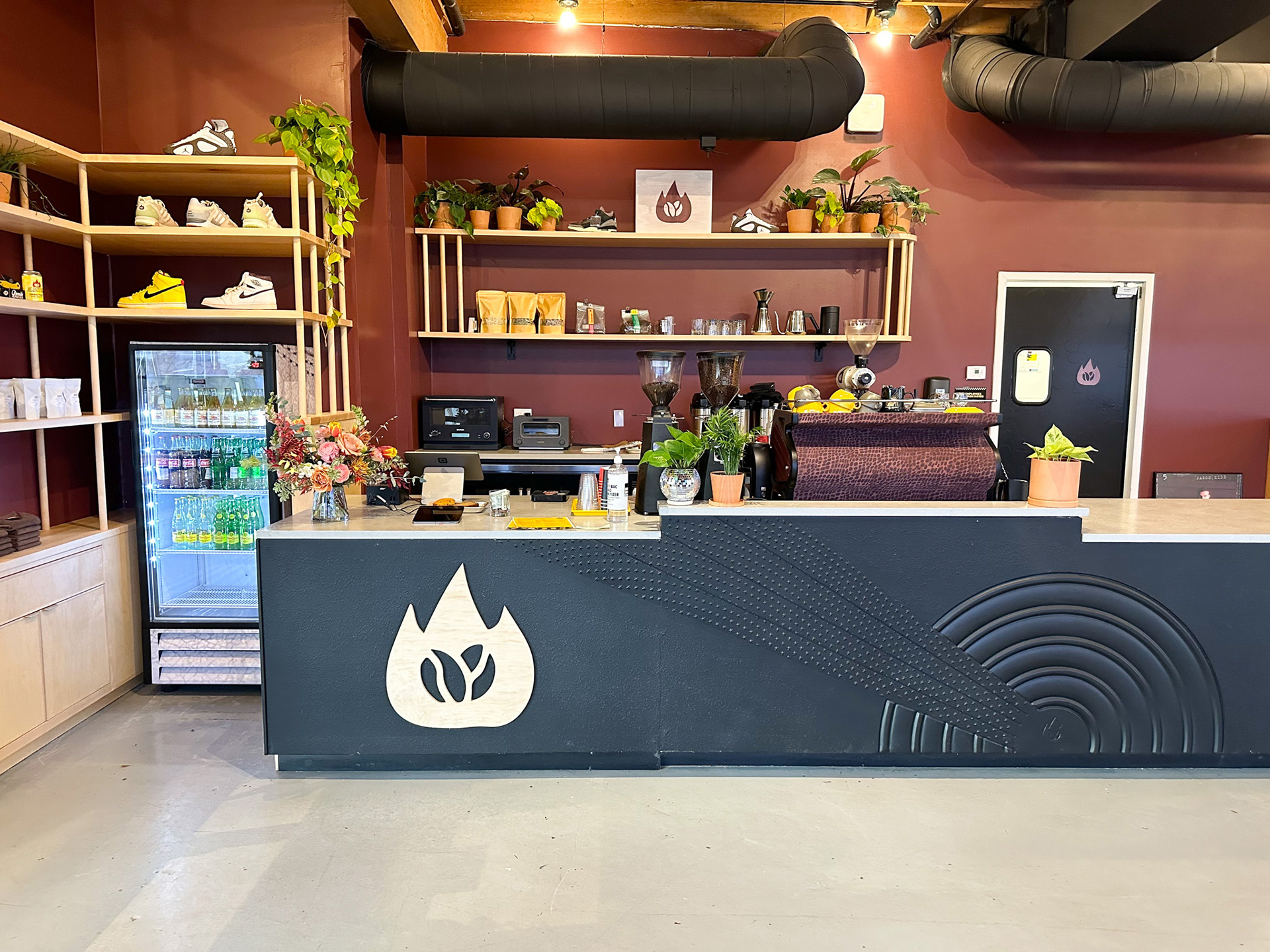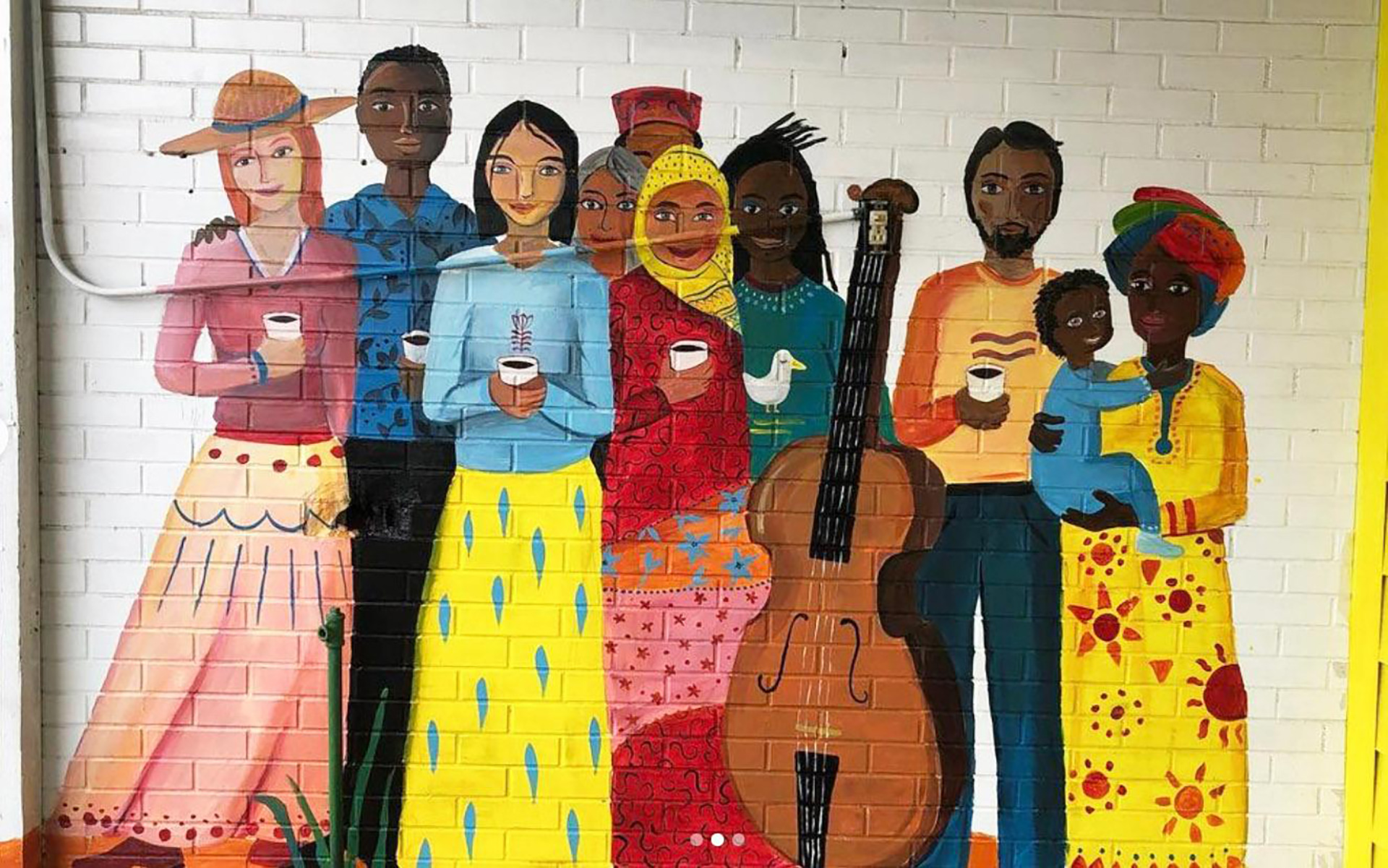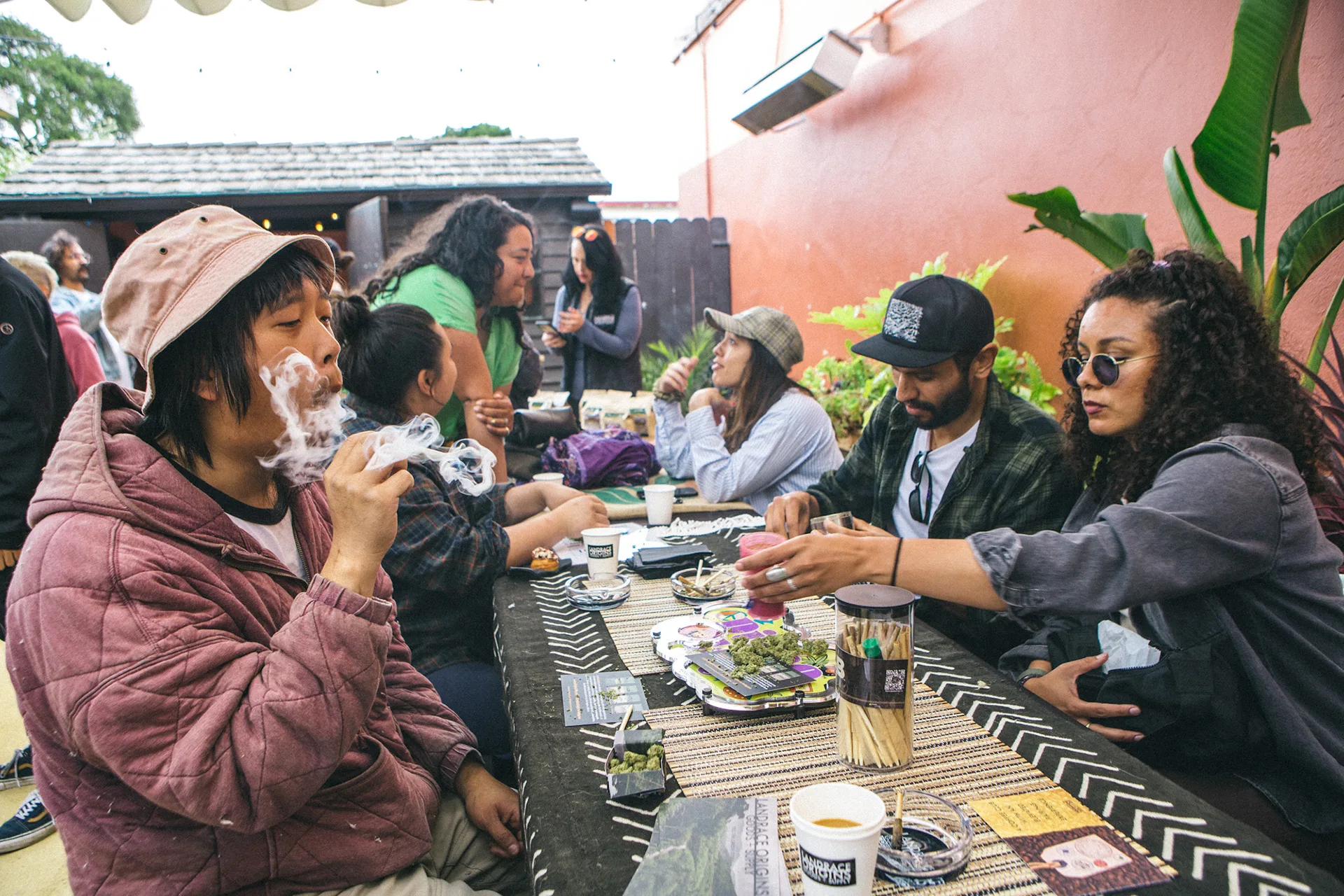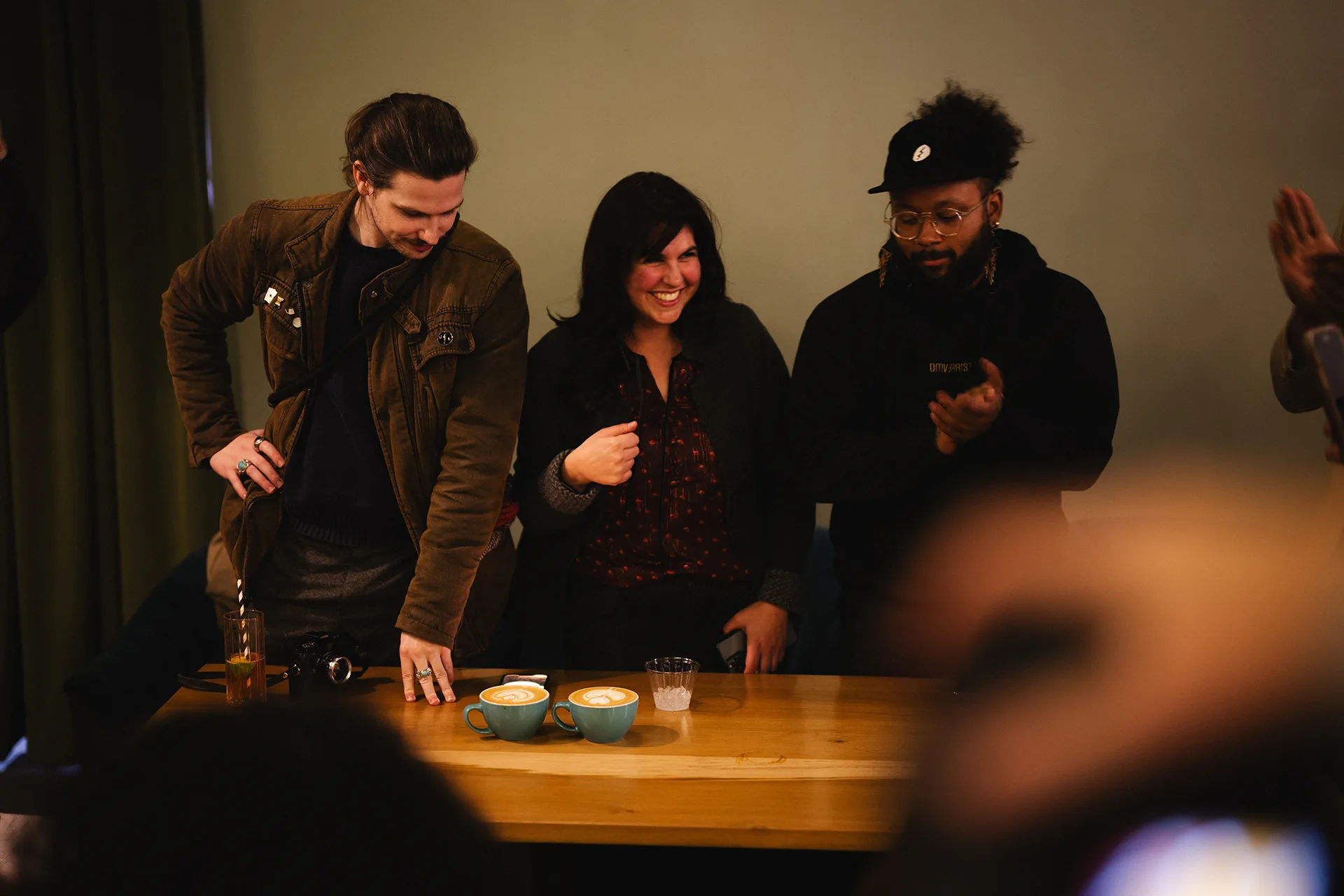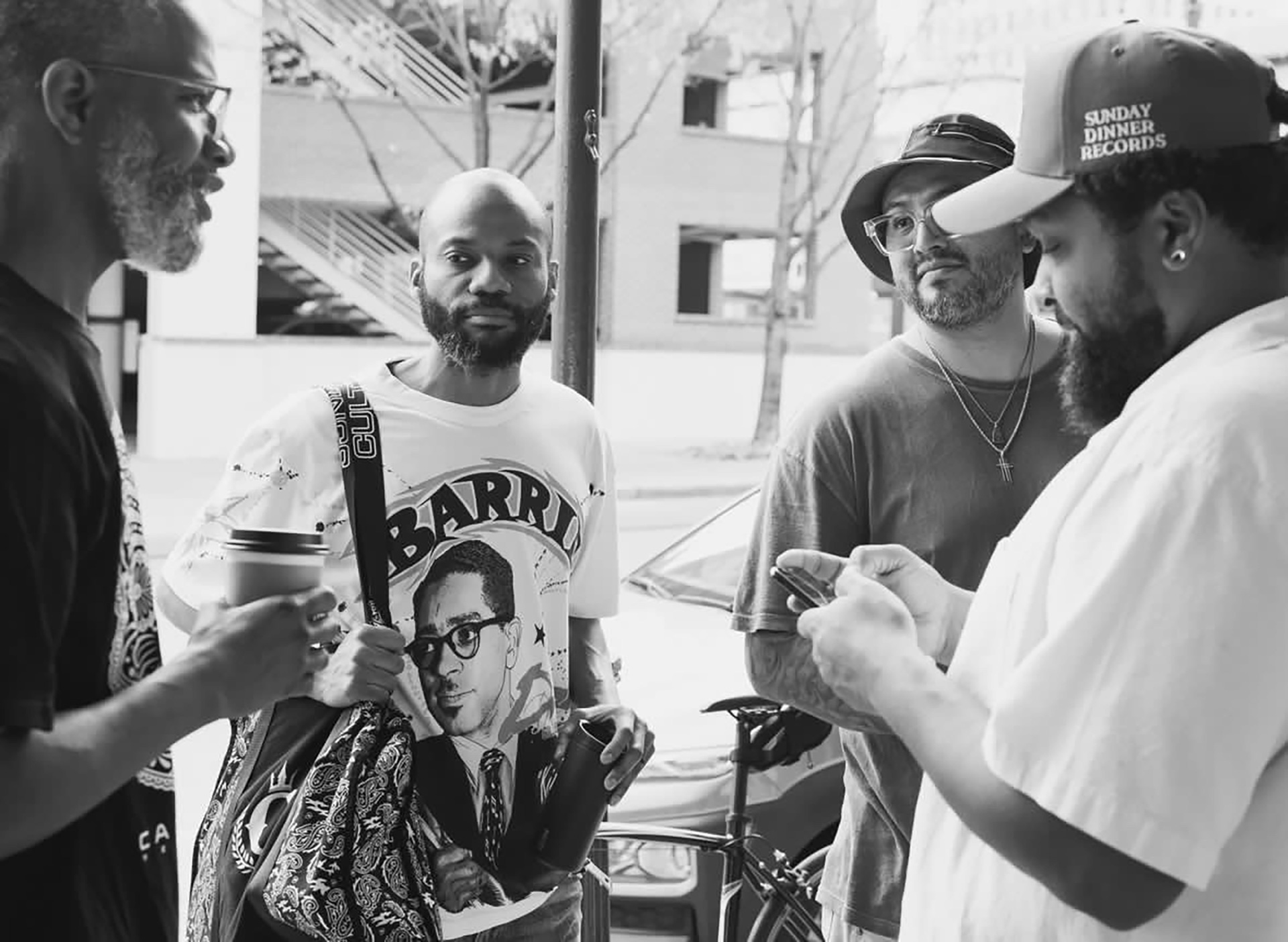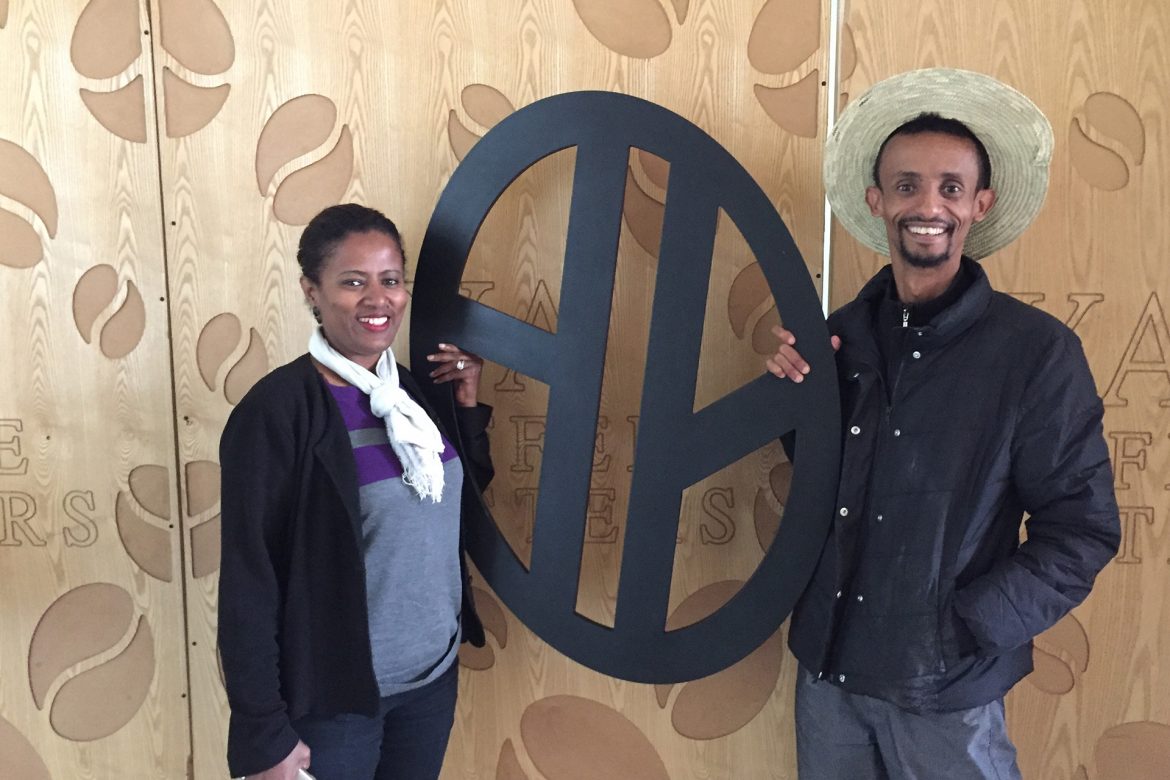
Ethiopia, the birthplace of coffee, holds the additional distinction of being the only coffee-producing country in the world that consumes more than half of what it grows. Despite this, in the cosmopolitan capital of Addis Ababa, locals and tourists alike in search of a quality cup are often forced to settle for low-grade, reheated brews.
In a unique trade arrangement, the government of Ethiopia mandates the export of any coffee grown within the country above a certain quality threshold (read: anything even close to specialty grade). A policy driven by a need for access to foreign currency, the rule tends to be just fine for busy locals who prioritize speed and convenience when grabbing a quick cup at the stalls of brewed coffee vendors on every street corner. The result is low-quality beans, unevenly roasted over a fire, and then reheated for hours or days until it sells.
It is from this deep concern for Ethiopia’s most famous cultural touchstone that YA Coffee emerges.
An alcove nestled deep in the belly of a nondescript office building seems like an odd place for one of Addis Ababa’s lone specialty coffee experiences, but once you step into YA Coffee’s newly christened roastery and cafe you know you’re in the right spot. Bright pictures adorn the wall in a film strip that describes the story and processing of Ethiopia’s coffee and immediately forces you out of the drab office surroundings. Cozy, traditional furniture pieces are warmly scattered throughout the space. When you belly up to the bar, you’re greeted personally by either proprietor Dagmawi Iyasu or his wife and business partner Sara Yirga, who handles the roasting on their Ozturk Bay OKS-10 Roaster.
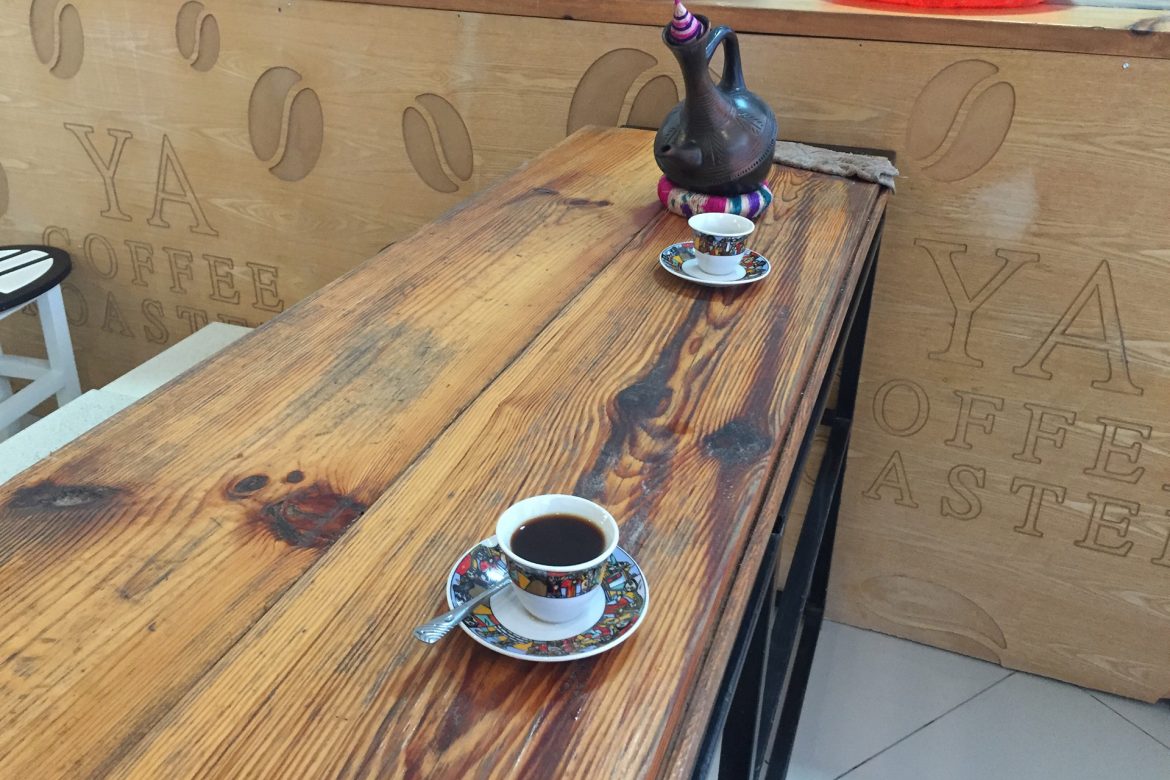
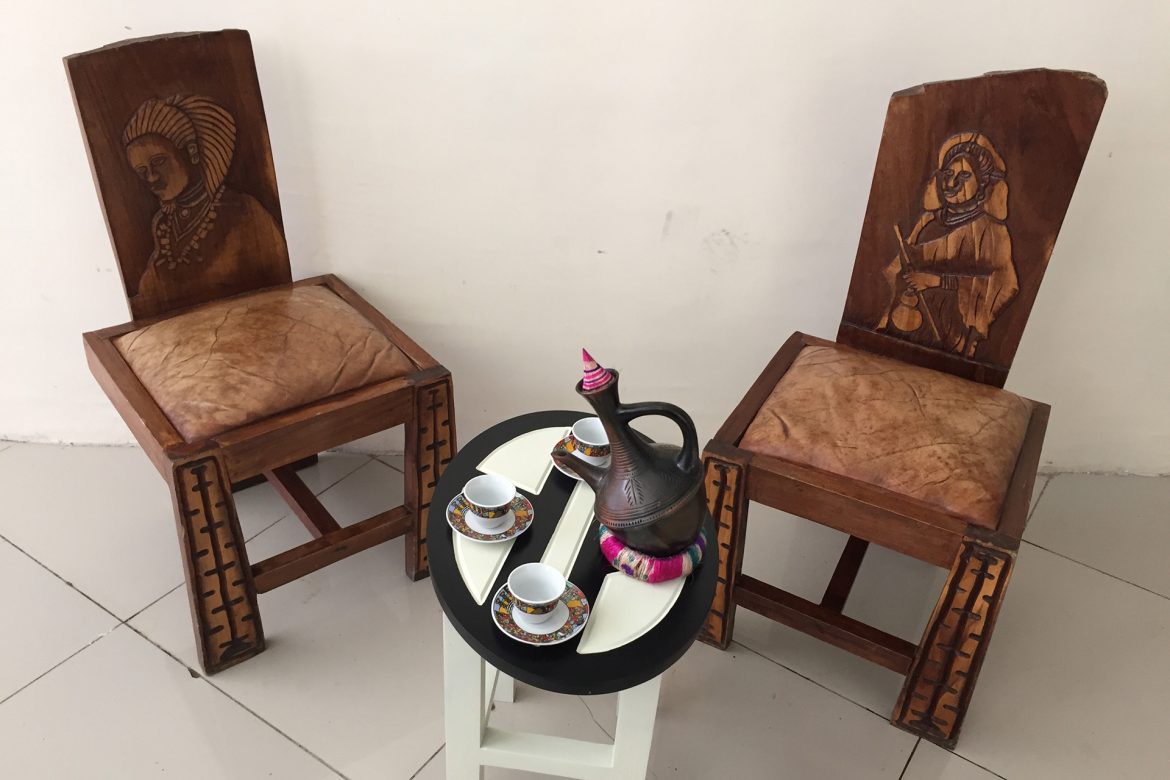
YA Coffee quickly reveals its uniqueness not just as one of the few specialty experiences in Addis Ababa, but also as a shop that seeks to bring you that experience while preserving the country’s rich cultural tradition. The owners of YA Coffee only serve local beans and brew them exclusively in the jebena–a bulbous, long-stemmed coffee pot that has been in use in Ethiopia for more than a millennium.
The ten-minute process for the coffee to be measured, ground, and heated may feel typical to a specialty coffee consumer from another country, but for local clientele accustomed to cheap, quick coffee, there is quite a learning curve. I talked with Iyasu and Yirga on a quiet Saturday morning, before the official opening of the roastery. Over the course of our conversation, three customers came in but all left before their coffee was ready, grumbling about the wait. That said, it’s certainly quicker than the traditional hours-long Ethiopian coffee ceremony, and the end product is just as good—or even better.
A cup of the jebena coffee comes in a demitasse fitting roughly double the volume of espresso but packing a slightly lower total dissolved solids ratio and caffeine content. The heating of the grounds and water together in the jebena allows for a longer extraction period which brings out more of the coffee’s caffeine than brew preparation methods from other parts of the world–something Iyasu and Yirga call “slow brew.” More importantly though, the extended exposure also brings out the bean’s complex flavors. “Ethiopia has over 6,000 varieties of coffee,” Iyasu likes to say, “and with that more than 6,000 flavors. We want to be able to offer you all of those flavors.” And if you ask Iyasu, the best way to sample that diversity is in the traditional jebena.
He doesn’t just speak as an uninformed fanatic of the preparation method, however. A biochemist by training, Isayu conducted “arguably the first ever comparative sensory analysis of jebena” coffee in 2016. He compared it with preparation in a Moka pot at the Illy University in Italy and even saw international members of the industry choose the Ethiopian brew as their preferred method in a blind tasting.
The reason to be in coffee for Yirga and Iyasu clearly extends far beyond the company itself. Yirga wrote the charter for, and is currently a board member of, the Ethiopian Women in Coffee Association. Isayu, apart from evangelizing the jebena abroad, also works as the East Africa regional director for the coffee-cum-cervical-cancer-screening organization Grounds for Health when not helping in the roastery.
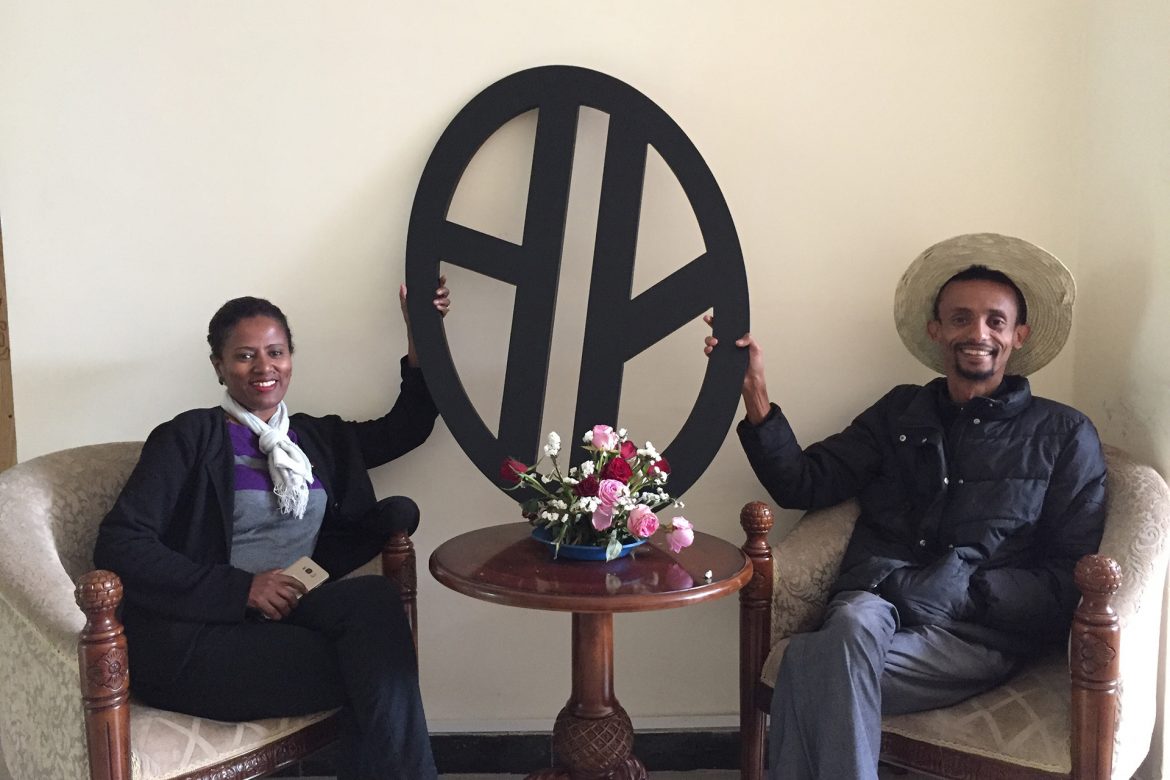
Their broad involvement means that the vision for YA Coffee has to extend far beyond this nondescript office building in a calm corner of Addis Ababa. The business partners look to export roasted beans and enter coffee tourism amongst the rock-hewn churches of Lalibela by year’s end. Looking further to the future, the couple’s goals range from thermodynamically-optimized jebenas, their own demo farm, and, most ambitiously, a degree-granting coffee and leadership academy established by 2043 that extends far beyond coffee. “We want to train the younger generation,” Yirga explains, “upcoming entrepreneurs who want to be in business of any kind.”
In the end, this isn’t a project about a roastery, or even about coffee. This is a labor of love from a couple that is passionate about their country and culture and wants to share it with everyone who walks through their doors.
The business is coffee, but in Isayu and Yirga’s eyes, the mission is nothing less than the future of Ethiopia.
Rob Hefferon is a freelance journalist. This is Rob Hefferon’s first feature for Sprudge.























